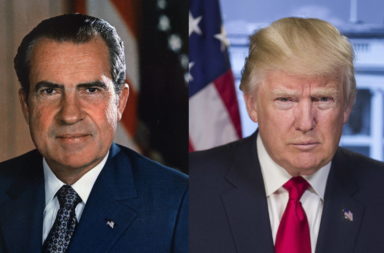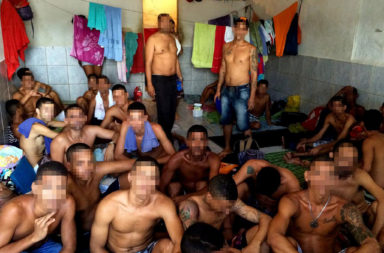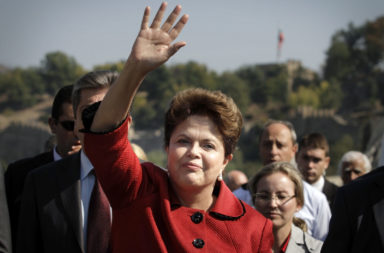While the process goes on, the consequences of it can be worst than the act itself.
“They lost in 1964 and they lost now in 2016…. in memory of Carlos Alberto Brilhante Ustra…I vote yes” said congressman Jair Bolsonaro, while declaring his vote in favor of the removal of President Rousseff from office. Colonel Ustra was responsible for torturing, among others, the young Dilma Vana Rousseff, when she was fighting against the military dictatorship that ruled Brazil between 1964 and 1985. In a circus-like session that was held on a Sunday, 367 congressmen voted in favor (342 were necessary) and 137 against the removal of Ms. Dilma Rousseff from office. Under accusations of manipulating public accounts to hide the true size of the public deficit, the congressmen (many of which are accused of corruption themselves) gave the current government a big loss by opening the impeachment process, turning the possibility of taking the current president out of her office into a likely threat.
The vote was a result of intense weeks of failed political negotiations of Ms. Rousseff and her allies to maintain the fragile government coalition after the PMDB, the biggest party of the alliance (from which the vice-president, the speaker of the lower house and the speaker of the Senate are members), left the boat. Many smaller parties did not believe in the strength of a fragile coalition to sustain Ms. Rousseff´s government in case of a successful voting on the impeachment, which made the majority of the lower house members to vote for a yes.
Next steps
The process now goes to the Senate, where a simple majority needs to vote for the opening of the process. The vice-president Mr. Michel Temer will only assume presidential duties after the likely approval of the process by a simple majority in the Senate. After that, Ms. Rousseff´s will wait for her trial for the following 180 days. If the charges against the president are approved, she will leave office permanently. If she is acquitted, she comes back in office. Either way, this scenario will likely strengthen the instability of the political scene over the next months.
While the Senate has yet to vote on the matter, Ms. Rousseff remains weak in office while Mr. Temer feels the presidency on his hands, but not on paper. However likely that the Senate will vote for opening Ms. Rousseff´s impeachment, the Workers Party and social movements will likely take the streets and have already threatened to call a general strike as a way to pressure the senators for voting in favor of Rousseff.
Is it the end of the political crisis?
If the power ends up on the hands of Mr. Temer over the next intense weeks, the vice-president will face two scenarios:
- Economy gets back on track and a new government gets elected in 2018
Mr. Temer needs to convince the Congress and the civil society that his economic recovery plan is solid and feasible. In a whatsapp-audio leaked days before the impeachment voting on the lower house, Mr. Temer appeared rehearsing for his inauguration speech in case of Ms. Rousseff´s fall. He indicated the construction of an alliance with opposition members to get the necessary measures approved. The leaked audio strengthened the argument that the impeachment was a coup, and gave force to social movements to fight against removing President Rousseff.
In case he is successful in delivering effective reforms, the movements against his government could weaken as the 2018 presidential elections knocks on the door. However, an optimistic scenario does not consider the new findings of the “Lava-Jato Operation”, which is currently investigating the biggest corruption scandal in the country, concerning the state owned firm Petrobras.
Previous statements made by convicted politicians indicate that Mr. Temer may be involved in the bribery scheme. Also, the Supreme Electoral Court investigates whether public money was funneled to Ms. Rousseff´s and Mr. Temer campaigns, which would, if confirmed, result in anticipated elections. Any of these accusations can end up undermining the legitimacy of his government, even if he achieves success in implementing reforms.
If the short government manages to implement the necessary reforms, a presidential election in 2018 – which will also get rid of the current Congress – can open doors for a more stable and peaceful scenario.
- Economy does not recover and Temer faces an increasing opposition
Although not as strong as the movements against Ms. Rousseff, there is a general popular dissatisfaction against the current political leadership in the country. Depending on the economic effects and the policies of Mr. Temer´s mandate, the streets can start turning their rage on him. A recent poll showed that 58% of Brazilians want the impeachment of Mr. Temer as well (whereas 61% called for Ms. Rousseff´s impeachment in the same pool).
Difficult and unpopular reforms are planned – cuts on social programs, negative effects of the minimum wage, privatizations and social security reforms – and could undermine Mr. Temer´s support in office. A sudden optimistic wave, such as the one that hit Argentina after Maurício Macri´s election, is unlikely to come from a government that does not arise from democratic elections.
Even in a pessimistic scenario with a shrinking economy, such a consuming process of another impeachment is highly unlikely – although not impossible, given the ups and downs of the Brazilian politics in the last months. If no further scandal arises, Mr. Temer will likely finish his transitional term in 2018 – where, again, a popular vote may bring some peace to the country.
What happens to the Olympics?
With the works and preparations for the Olympics going well, the political crisis should not affect the success of the Games. It will, however, have a great impact on the mood of the Brazilians, known to be very happy and welcoming.
It is still unclear who will be the one posing in front of the international spotlight as the games begin on the 5th of August at the Maracanã Stadium. President Rousseff cancelled a trip to Greece to see the traditional ceremony of lightning the Olympic flame in front of the Temple of the Goddess Hera – otherwise, Mr. Temer would be the temporary official president.
The next weeks will be crucial to define the destiny of both Ms. Rousseff and Mr. Temer. Between a fight for power as the Executive and a televised circus showing an unprepared and ludicrous Congress, this moment in Brazilian history will be certainly not be reckoned with good words.
Photo Credit: Flickr, Senado Federal, CC A 2.0




